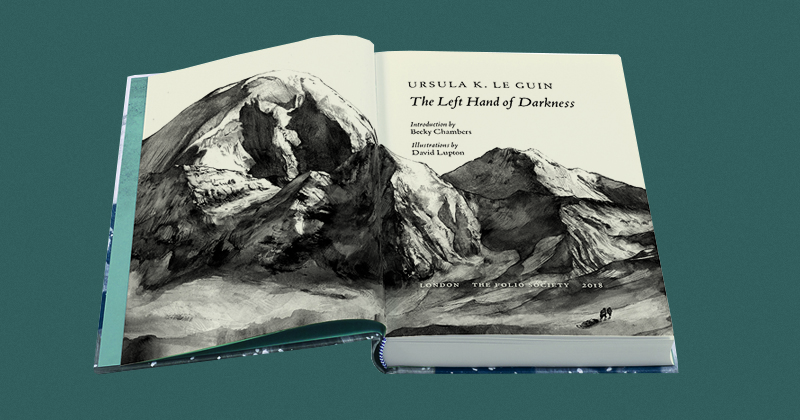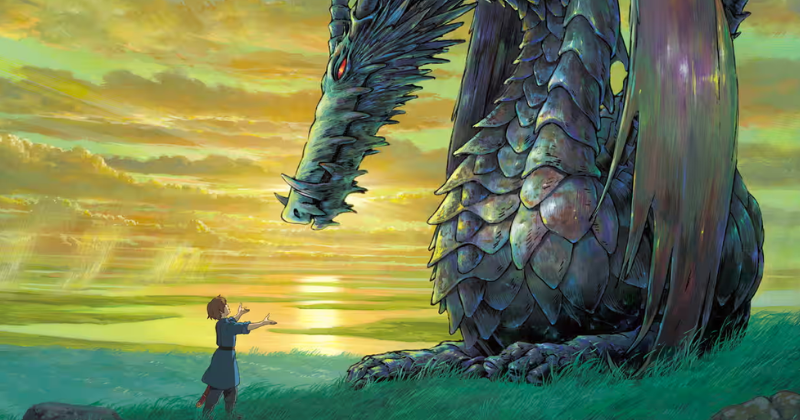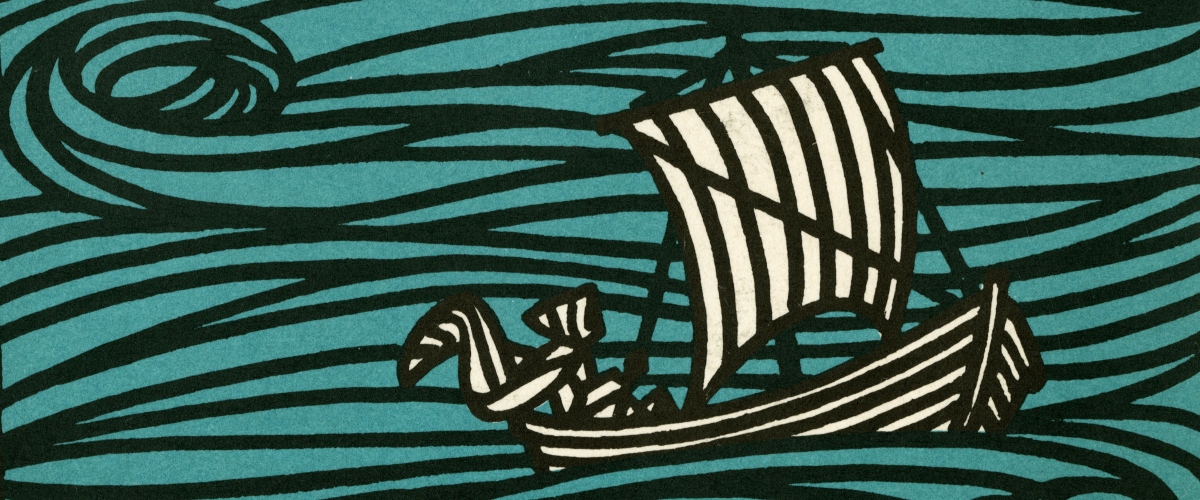The Journey That Matters is a series of six short videos from Arwen Curry, the director and producer of Worlds of Ursula K. Le Guin, a Hugo Award-nominated 2018 feature documentary about the iconic author.
In the third of the series, John Plotz reflects on “Worlds Out of Words,” in which Ursula talks about creating her most beloved fantasy world.
Ursula Le Guin’s Earthsea is both a series of books and a whole world. Perhaps its most amazing power is how it teaches readers that even here, in our own shared world, “words do make magic.”
Nobody who came to A Wizard of Earthsea as a child will ever forget Ged’s relationship to words of power. Calling down birds, or threatening a dragon with its own name, is the sort of magic that makes an overlit library fade away, that puts readers like shy solitary nine-year-old me out on the sea in a boat held together only with spells. “Making worlds out of words,” as she puts it here, is a power she felt lucky to have.
I love Le Guin’s insistence that readers look at her final product not just as a world but also a fiction, a made thing. One of her great essays about the craft of writing, “From Elfland to Poughkeepsie,” beautifully spells out her love for the plain dealing of fantasy: “There is only a construct built in a void, with every joint and seam and nail exposed.”
Yet Le Guin also puts herself in her reader’s boat. When I spoke with her in 2015, she told me her first venture into Earthsea was “literally [to] sit down and draw a big map with lots of islands about which I knew nothing at that point. I named them, happily. For the rest of the six books I could just travel around and find out what they were like.”
The way she delights in the fabricated nature of Earthsea matters for a lot of reasons. It has inspired countless writers and readers of fantasy, who love the way she breaks old, unspoken rules about a hero’s skin color and gender—and even (as in the case of Left Hand of Darkness) whether assigning them a gender makes sense. Beyond that, it also matters because Le Guin, as a fantasy writer herself, points out that seemingly immutable laws can turn out to be surprisingly transient: “Capitalism[’s]….power seems inescapable—but then, so did the divine right of kings,” she said in her 2014 National Book Award speech.
It also matters in another fundamental way, one you can see most clearly by turning to the Earthsea books she wrote long after she published A Wizard of Earthsea, The Tombs of Atuan, and The Farthest Shore. In Tehanu, Tales from Earthsea, and The Other Wind, she showed her readers that going forward sometimes involves turning back, even overturning what looked like a shared reality. In those later books, everything is up for grabs. A mantra of Earthsea (“Weak as woman’s magic; wicked as women’s magic”) stands revealed as a coercive truism—one of those “truth[s] universally acknowledged” that proves anything but. And when it comes to understanding the true nature of those deadly dragons…
In short, by rethinking Earthsea, every joint and seam and nail of it, she invited all of us to think again as well. That’s what made me feel I could write a book of my own about her Earthsea. She came to Earthsea with hands empty and then returned decades later, willing to empty her hands all over again.
—John Plotz, author of Ursula Le Guin’s Earthsea
*
Further reading:

Kelly Link in Praise of Ursula K. Le Guin’s Genuine Magic
“When thinking of Le Guin’s body of work, I can’t help seeing it as a kind of landscape: a range of mountains, an archipelago of islands, an arrangement of celestial bodies in the sky by which other writers navigate.”
How Imagining Other Worlds Can Help You Imagine Other Selves
“To me, A Wizard of Earthsea seems absolutely a story of the trauma that is done to us in our childhood, and the ways that we must fight as adults to overcome this history and arrive into ourselves.”

How The Left Hand of Darkness Changed Everything
“My entire life since—the books I’ve written, the convention bars I’ve sat in, the introduction I have the baffling privilege of writing now—was set in motion by the tale of Genly Ai and Estraven, crossing the Gobrin Ice.”

Dragons Are People Too: Ursula Le Guin’s Acts of Recognition
“The dragons of Earthsea and capitalism are woven from similar material: it is imagination all the way down.”




